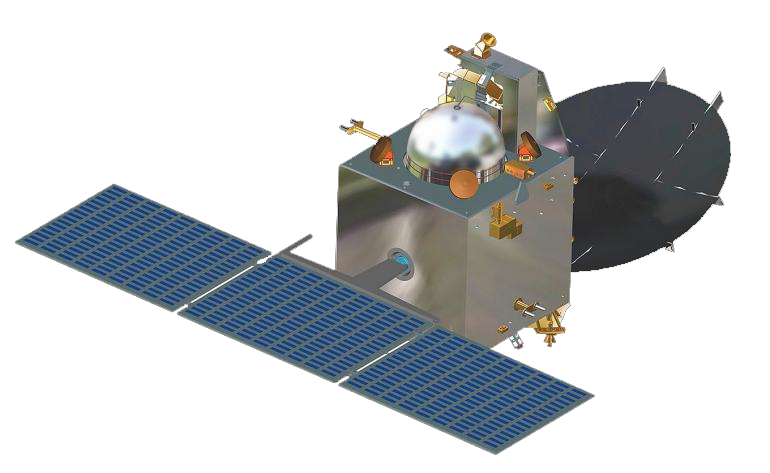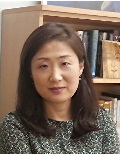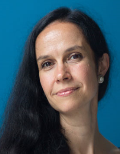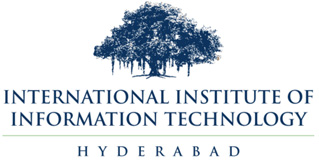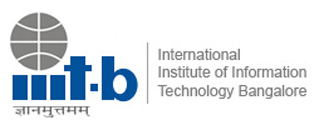Keynote Speakers
Sue Moon
Korea Advanced Institute of Science and Technology, South KoreaVisit Homepage
5th Jan 2017
For most of the 20th century networking platforms have remained mostly dedicatedhardware with proprietary software stacks. As the number of networking applications such as QoS controllers, VPN gateways, WAN optimizers, and firewalls, has increased, demand for flexible network configuration has never been stronger. Furthermore, the exponential growth of the datacenter networkingmarket has pushed technological breakthroughs in high-performance networking.
In this talk we cover past history of software routers based on commodity hardware with a focus on projects in our Advanced Networking Lab, namely PacketShader and NBA. From PacketShader to NBA, we have put batching as the first principle in high-performance networking platform design and exploited notjust for IO but also for computing. We have expanded NBA to include Xeon Phi asan additional heterogeneous accelerator and RDAM as an alternative high-speed interconnect. We are also investigating horizontal scaling techniques to achieve multiple of any single-box performance. Currently, the maximum single-box packet processing performance lies at 80Gbps but we expect the number to rise above 200Gbps in a near future. We conclude with remaining technical challenges and emerging relevant trends.
Sue Moon received her B.S. and M.S. from Seoul National University, Seoul, Korea, in 1988 and 1990, respectively, all in computer engineering. She received a Ph.D. degree in computer science from the University of Massachusetts at Amherst in 2000. From 1999 to 2003, she worked in the IPMON project at Sprint ATL in Burlingame, California. In August of 2003, she joined KAIST and now teaches in Daejeon, Korea..
Her research interests are: online social networks and networking systems.
Sue is KAIST Chair Professor at Department of Computer Science, KAIST, Daejeon, South Korea.
Sue has been awarded KAIST Chair Professorship for 2011-2014, 4th Knowledge Creation Award by Ministry of Education, Science & Technology in 2012, Young Engineer's Award by National Academy of Engineering of Korea in 2012, Amore Pacific Award for Outstanding Women in Sciences in 2009 and several others.
Anurag Kumar
Indian Institute of Science, IndiaVisit Homepage
6th Jan 2017
We consider single-hop topologies with saturated transmitting nodes, using IEEE 802.11 DCF for medium access. However, unlike the conventional WiFi, we study systems where one or more of the protocol parameters are different from the basic standard, or where the propagation delays among the nodes are not negligible compared to the duration of a backoff slot. We observe that for several classes of protocol parameters, and for large propagation delays, such systems exhibit a certain performance anomaly known as short term unfairness. We review the standard fixed point analysis technique and demonstrate that it fails to predict the system behaviour in such cases. Since an exact analysis of this model is computationally intractable, we develop a novel approximate, but accurate, analysis that uses a parsimonious state representation for computational tractability. Various insights obtained from such an analysis will be discussed.
Prof. Anurag Kumar obtained his B.Tech. degree from the Indian Institute of Technology at Kanpur, and the PhD degree from Cornell University, both in Electrical Engineering. He was then with Bell Laboratories, for over 6 years. He returned to India in 1988, and has since been with the Indian Institute of Science (IISc), Bangalore, on the faculty of the Department of Electrical Communication Engineering. Before taking over as the Director, on 1 August 2014, he was the Chair of the Electrical Sciences Division since 2007. From 1988 to 2003 he was the Coordinator at IISc of the Education and Research Network Project (ERNET), a UNDP and Government of India national program that established India's first wide-area packet switching network.
His area of research is communication networking, specifically, modeling, analysis, control, and optimisation problems arising in communication networks and distributed systems. Recently his research has focused primarily on wireless networking. He has been elected Fellow of the IEEE, the Indian National Science Academy (INSA), the Indian National Academy of Engineering (INAE), the Indian Academy of Science (IASc), and The World Academy of Sciences (TWAS). He received the IISc Alumni Award for Excellence in Engineering Research for 2008. He has been awarded a DST J.C. Bose National Fellowship for the years 2011-2021.
Muriel Medard
Massachusetts Institute of Technology, USAVisit Homepage
7th Jan 2017
The approximate inverse relation between delay and throughput in networking is a simple and often useful one. As applications with ever increasing delay constraints emerge, that coarse characterization can be misleading. The notion of delay itself depends on the application, ranging from completion of download to in order delivered delay, or even in order acknowledged delay. Indeed, the case of in order packet delay, decreasing delay may lead to reducing throughput, a trade-off that increases with round-trip time. The effect of reliability mechanisms, such as physical layer error correction and lower layer retransmissions, intended to improve throughput, may be in effect deleterious to delay. We argue that such lower layer mechanisms should be reduced or eliminated in favor of higher-layer network codes and discuss the construction of such codes for different measures of delay
This is a joint work with David Adams, Flavio du Pin Calmon, Jason Cloud, ‘Etuate Cocker, Jinfeng Du, Attila Eryilmaz, Kerim Fouli, Amir Gosain, Janus Heide, Doug Leith, Mohamed Karzand, Marie-Jose Montpetit, Chris Ng, Asuman Ozdaglar, Arman Rezaee, Ivan Seskar, Shirley Shi, Ulrich Speidel, Surat Teerapittayanon, Peter Vingelmann, Chris Yu, Linda Zeger, Weifei Zeng,
Muriel Médard is the Cecil H. Green Professor in the Electrical Engineering and Computer Science Department at MIT and leads the Network Coding and Reliably Communications Group at the Research Laboratory for Electronics at MIT. She has co-founded two companies to commercialize network coding, CodeOn and Steinwurf. She has served as editor for many publications of the Institute of Electrical and Electronics Engineers (IEEE), of which she was elected Fellow, and she is currently Editor in Chief of the IEEE Journal on Selected Areas in Communications She was President of the IEEE Information Theory Society in 2012, and served on its board of governors for eleven years. She has served as technical program committee co-chair of many of the major conferences in information theory, communications and networking. She received the 2009 IEEE Communication Society and Information Theory Society Joint Paper Award, the 2009 William R. Bennett Prize in the Field of Communications Networking, the 2002 IEEE Leon K. Kirchmayer Prize Paper Award and several conference paper awards. She was co-winner of the MIT 2004 Harold E. Edgerton Faculty Achievement Award. In 2007 she was named a Gilbreth Lecturer by the U.S. National Academy of Engineering.
